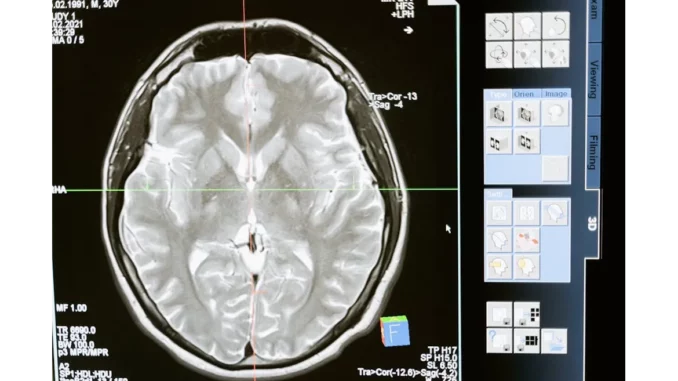
Recently, I had the privilege of engaging in an enlightening conversation with Dr Jennifer Collins, a distinguished researcher in public health and an active participant at the CalIT2 Workshop. This workshop served as an intellectual crucible, drawing together experts from myriad fields to confront some of the most urgent challenges in health and medicine. Over the course of this immersive event, participants grappled with topics ranging from addiction to the intricacies of hospital cybersecurity. Dr Collins offered a thoughtful recount of her experiences and insights gleaned from this stimulating gathering.
“The workshop was a true melting pot of ideas,” Dr Collins remarked, her enthusiasm infectious. “It was truly fascinating to witness professionals from such diverse disciplines converge, each contributing their unique perspectives.” Among the most pressing issues was the subject of cybersecurity within healthcare—a field that has garnered escalating attention in recent years. Dr Collins recounted a compelling presentation by Dr Joshua Tully, a clinician and cybersecurity expert, who illuminated the complex interplay between cybersecurity and patient care. “Dr Tully’s insights were nothing short of a wake-up call,” she noted. “He underscored the dual responsibilities clinicians now face—not only caring for patients but also acting as vigilant guardians of cybersecurity.”
Dr Tully’s presentation delved deeply into the potential repercussions of cyber threats on healthcare systems, using the infamous 2021 Scripps Hospital ransomware attack as a poignant case study. This incident highlighted the vulnerabilities inherent in healthcare infrastructures and demonstrated how such breaches can reverberate across entire regions. “The statistics were alarming,” Dr Collins said. “A ransomware attack can severely diminish patient survival rates, particularly in critical cases such as cardiac arrests.” The workshop also showcased innovative solutions designed to mitigate these threats. Of particular note was the proactive approach of the Centre for Healthcare Cybersecurity. “Their system, which identifies anomalies in digital signatures, is truly groundbreaking,” she remarked. “Being able to detect a ransomware attack hours before it becomes widely acknowledged could potentially save countless lives.”
Beyond the realm of cybersecurity, the workshop also explored the essential theme of reconnecting public health with the public itself. Dr John W. Ayers’ presentation on “Getting the Public Back in Public Health” resonated deeply with attendees. Described by Dr Collins as a clarion call for public health professionals, Dr Ayers emphasised the existing disconnect between academic research and tangible societal issues. “He advocated for a more integrated approach to public health that actively engages with and addresses community needs,” Dr Collins explained. This notion of bridging the divide between data-driven research and the lived experiences of individuals resonated strongly with her. “Public health should transcend mere statistics,” she asserted. “It must embrace the realities of individuals and communities to craft interventions that yield genuine improvements.”
Throughout the workshop, a consistent theme of collaboration emerged. Dr Collins observed that the event fostered cross-disciplinary dialogue, underscoring the interconnectedness of various aspects of health and medicine. “We engaged in discussions on addiction, mental health, and even the role of artificial intelligence in healthcare,” she recounted. “Each session complemented the other, creating a comprehensive view of both the challenges and opportunities that lie ahead.” The workshop was not solely about identifying problems but was also focused on seeking viable solutions. Dr Collins was inspired by the emphasis on actionable strategies and the eagerness of participants to share their expertise and experiences. “There was a palpable sense of urgency and a commitment to effect meaningful change,” she observed. “It was about harnessing our collective expertise to drive innovation and ultimately improve patient outcomes.”
Dr Collins departed from the workshop invigorated, armed with fresh insights and a renewed sense of purpose. “Being part of such a dynamic event reinforced the importance of staying informed and adaptable,” she reflected. “The future of health and medicine is evolving at a rapid pace, and we must be proactive in our approach to address its challenges.” As our conversation drew to a close, Dr Collins emphasised the critical role of such workshops in shaping the future of healthcare. “These gatherings are indispensable,” she concluded. “They not only fuel innovation but also cultivate a community of professionals dedicated to enhancing health outcomes on a global scale.”
The CalIT2 Workshop transcended a mere exchange of ideas; it stood as a testament to the power of collaboration and the potential for innovation in addressing some of the most pressing issues in health and medicine today. Through the lens of Dr Collins’ experience, it becomes evident that the future of healthcare is entrusted to those willing to challenge the status quo and embrace the complexities of modern medicine with open minds and a collaborative spirit.


Be the first to comment